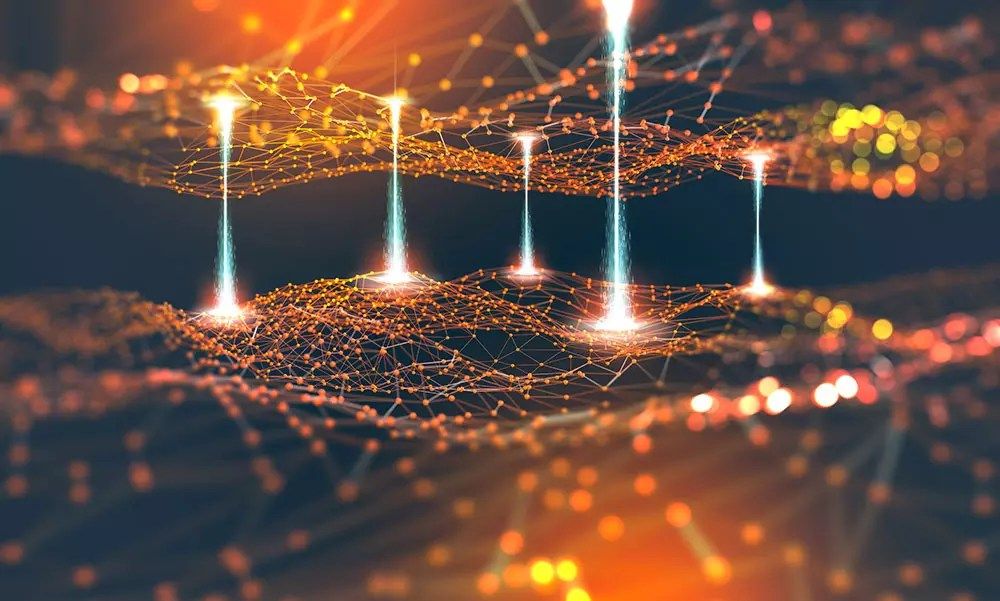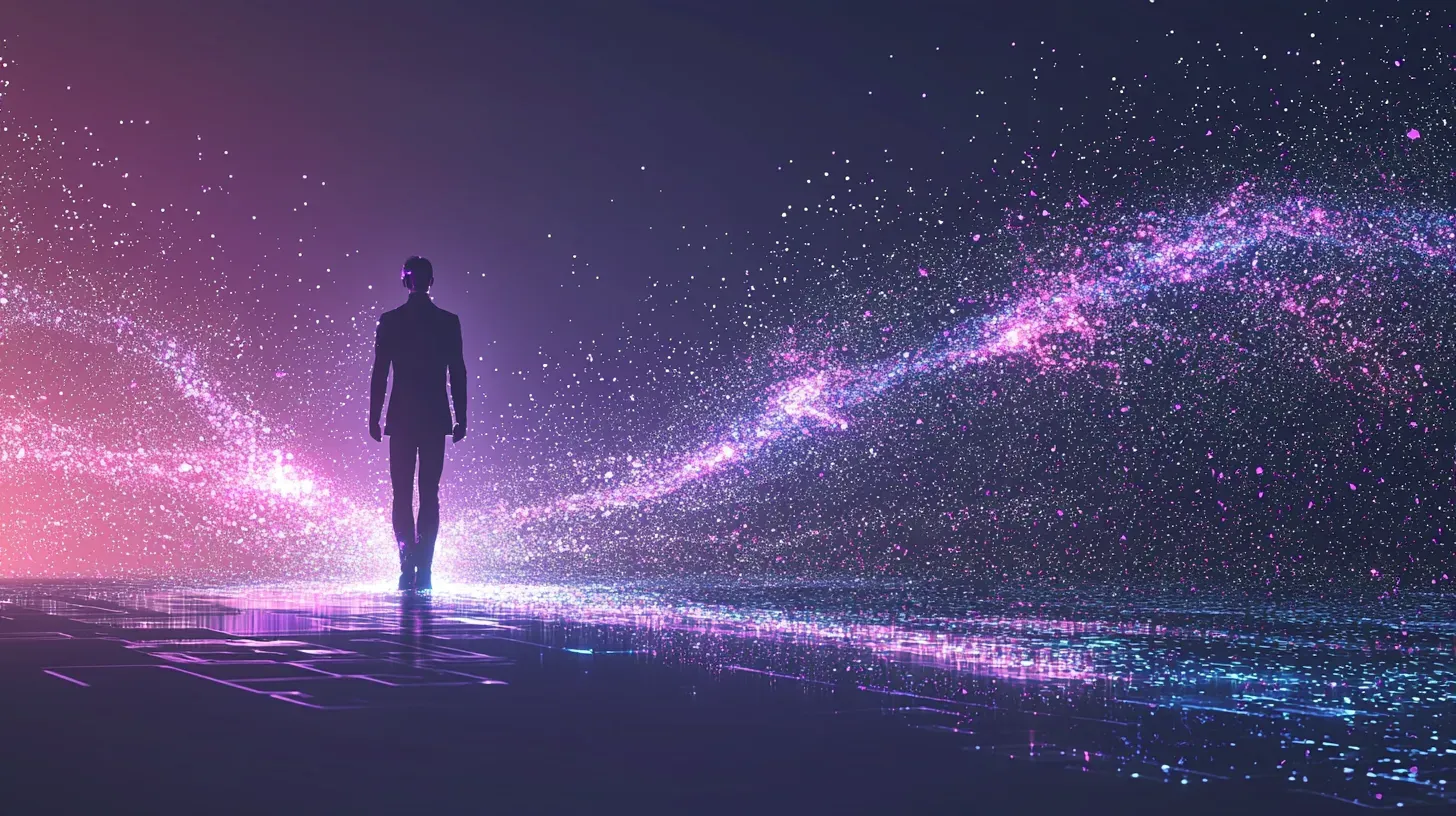What the Convergence of AI and Blockchain Means for Organisations

AI and Blockchain are two of the hottest technology trends hitting the market today. Blockchain stands to revolutionise communication and transaction recordation, building trust between strangers and enabling increased provenance, transparency and privacy. AI takes on incredibly complex tasks and applies tremendous computing power to learn these tasks to near perfection. So, how do these very disparate technologies come together to create even more opportunity? Though created using fundamentally different approaches to technology, both technologies have a lot to offer each other.
The Merging of AI and Blockchain
Private data platforms feed training data to centralised AI systems, teaching them a variety of different skills. Blockchain relies on decentralised systems to provide additional security, essentially creating a new foundational technology that might replace some existing security protocols. This fundamental difference in approach allows the two technologies to create a unique and powerful synergy.
AI Helps Cut Costs and Secure the Chain
One of the biggest downsides to blockchain technology is the operating cost. Energy is a major factor in validating and sharing transactions thanks to the Proof of Work consensus mechanism still in place in many blockchains. In fact, some estimates put total energy consumption at higher than some countries use in a year. A single transaction can burn as much energy as your entire house uses in a week. That’s a lot of energy. AI can help.
Developers of Matrix combine intelligent centralisation with decentralisation to create a workable, scalable and more environmentally friendly blockchain option that includes AI controls. The Whisper Network may remove miners from the equation altogether with an AI-controlled solution that uses a Directed Acyclic Graph (DAG) instead of a traditional blockchain structure. Regardless of the eventual solution, AI has a role to play in reducing the cost of each transaction in the chain.
Security is another area where AI can assist blockchain. After all, it is the incredibly secure nature of the decentralised network that helps blockchain build trust between strangers and organisations. That means security is an integral part of the blockchain value proposition. The biggest security challenges facing blockchain don’t happen on the chain but attack the applications that use the chain. These layers add an element of centralisation that makes them vulnerable to hacking, such as centralised crypto exchanges. AI is more capable than human management when it comes to securing these applications.
Again, it will be years before you can trust AI completely with these critical tasks, but with human oversight, there is a lot of value to be had in combining these technologies. Just remember that AI is still in its infancy and needs eyes on to help as it learns the ropes.
Blockchain Raises Trust in AI and Between AI
You have seen the movies. AI can’t be trusted, right? Developing a true superintelligence means a post-apocalyptic society of man vs. machine. While that idea makes for great movies, it doesn’t have to be a reality if we take the right measures. Today’s AI’s are laser-focused on single-use performance. Facial recognition software can instantly pick out a person in the crowd with better accuracy as a human observer. AI can more quickly and accurately detect certain medical issues on scans than the human eye. But, AI will only get to demonstrate its incredible potential if the general public is willing to give it buy-in. That’s where the blockchain comes in.
Decentralised Autonomous Organisations (DAO) is a blockchain concept that can put some serious brakes on modern AI. Essentially, any contract laid down in the DAO is immutable for the AI system. There is no catastrophic risk since the computer is extremely limited in scope and ability.
With public acceptance, AI can grow rapidly, but it also needs a way to trust data coming from different systems. How can AI determine which data is accurate and which is noise? The blockchain has an answer for that too, creating terabytes of clean, usable data that is set in stone. More clean training data means faster teaching times for AI and fewer mistakes. Blockchain has the potential to offer this data without the premium prices current data banks command.
Blockchain + AI in Action
While these theoretical benefits sound great, the proof is always in the application. Some companies are on the leading edge of this stunning technological synergy with applications like A.I BlockChain. This seemingly simple enterprise software brings the immutable blockchain to enterprise organisations with an efficiency that can only be gained with AI. Effect.AI is using a decentralised model to simultaneously offer better and faster AI training programs and ways to farm out repetitive tasks to systems that have already mastered the needed skills. By offering data and resources at affordable rates and through a blockchain system, both parties can trust that the service will be implemented as stated in the smart contract.
Final Thoughts
While combining AI and blockchain raises some incredibly exciting options, it also poses some risks. This convergence is so new that it is essentially impossible to find experts and scams are part of the landscape. You can’t easily assess the value a company offers since there is no history to browse. There are no proven use cases, only projects in development. That makes finding the right partners for your AI+blockchain projects a challenge. Of course, that doesn’t mean you shouldn’t be looking. After all, this combo could lead to massive market shifts, disruption and significant cost savings for the early adopters.
Image: Yurchanka Siarhei/Shutterstock





